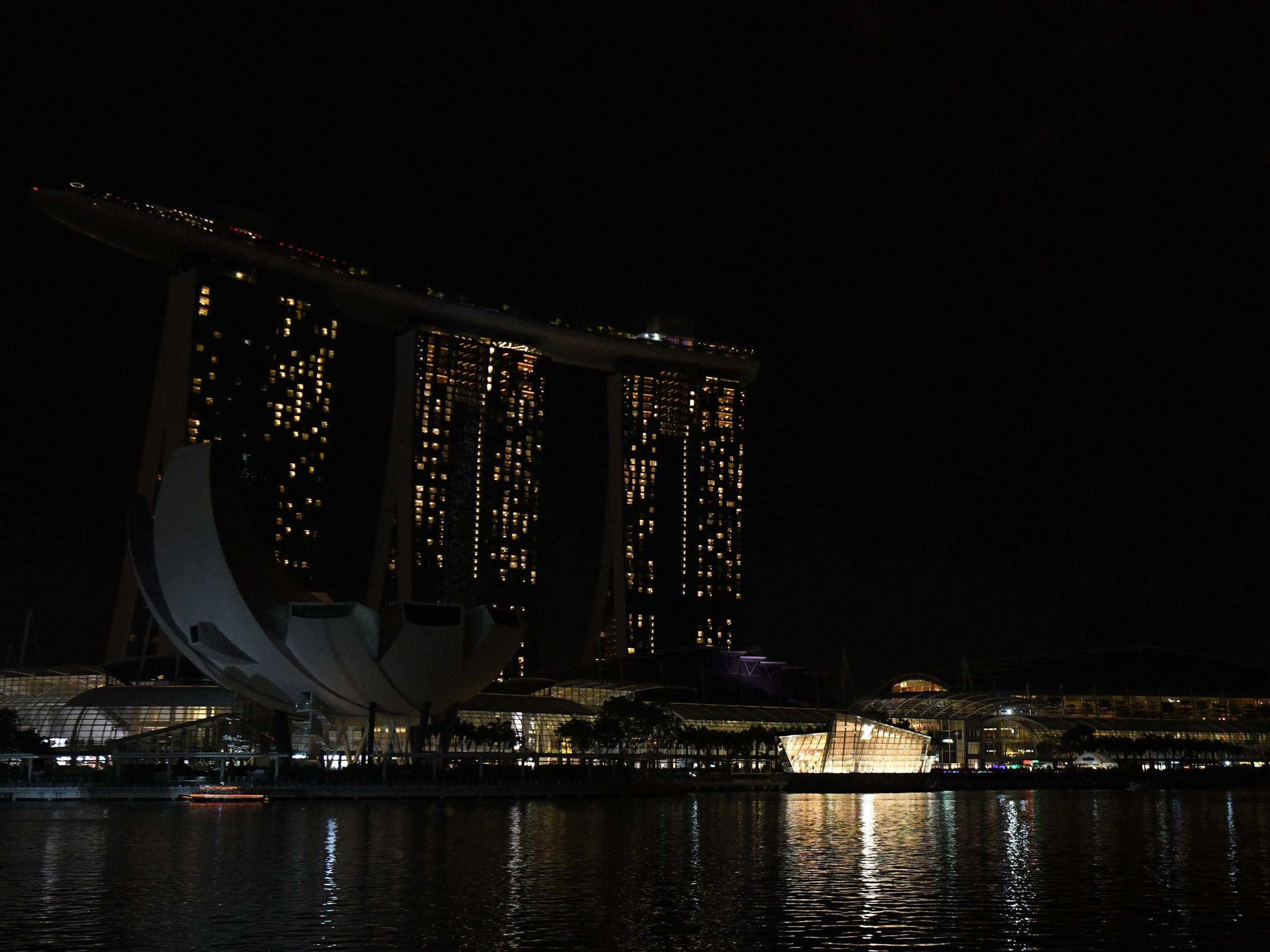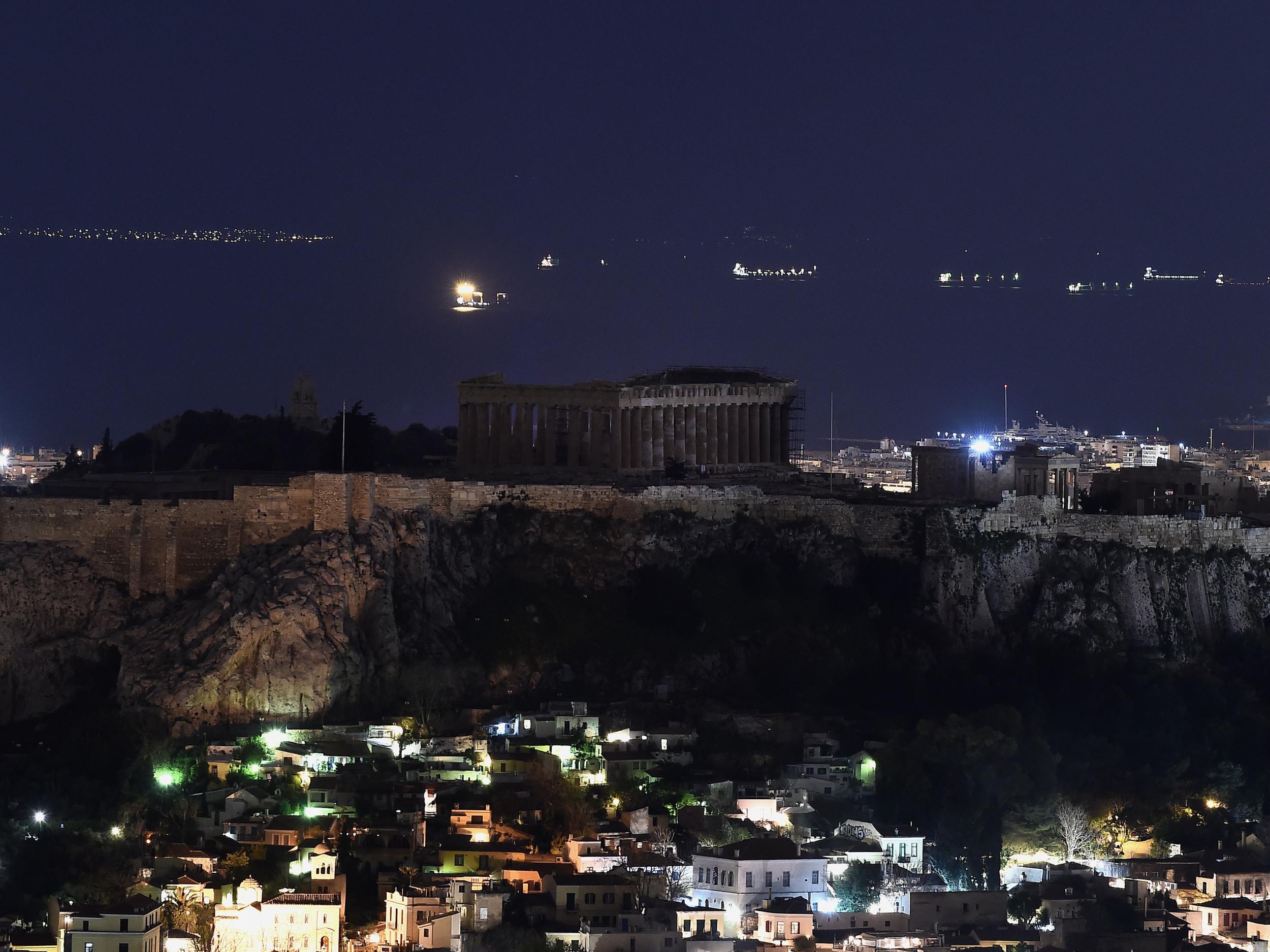Earth Hour: Millions participate in global switch-off to raise climate change awareness
Annual event sees global blackout as environmentalists hope to 'send a powerful message that we must act now' to save planet
Your support helps us to tell the story
From reproductive rights to climate change to Big Tech, The Independent is on the ground when the story is developing. Whether it's investigating the financials of Elon Musk's pro-Trump PAC or producing our latest documentary, 'The A Word', which shines a light on the American women fighting for reproductive rights, we know how important it is to parse out the facts from the messaging.
At such a critical moment in US history, we need reporters on the ground. Your donation allows us to keep sending journalists to speak to both sides of the story.
The Independent is trusted by Americans across the entire political spectrum. And unlike many other quality news outlets, we choose not to lock Americans out of our reporting and analysis with paywalls. We believe quality journalism should be available to everyone, paid for by those who can afford it.
Your support makes all the difference.Millions of people in countries around the world switched off their lights for Earth Hour to raise awareness about climate change and other environmental issues.
Since beginning in Sydney in 2007, Earth Hour has spread to more than 180 countries, with tens of millions of people joining in – from turning off the porch lights to letting the Sydney Opera House go dark.
The 11th Earth Hour event focused on support for biodiversity – specifically forests, oceans and wildlife conservation.
Australia was the first nation to turn its lights off at 8.30pm local time, with other countries following suit as the sun set across the globe.
Key landmarks participating in the annual event included the Eiffel Tower in Paris, the Pyramids of Egypt and New York's Empire State Building.
In Jordan, the Royal Society for the Conservation of Nature arranged 11,440 candles on a hilltop in the capital of Amman, establishing a Guinness World Record for the largest candle mosaic.
Last year nearly nine million people took part in the event across the UK, where the lights went off in Tower Bridge, Brighton Pier and 400 other landmarks across the country.
The initiative, which is managed by WWF, is meant to “inspire millions to take action for our world”.
Earth Hour's 60 minutes are "an opportunity to adopt a shifting of the consumption culture, and behaviour change towards sustainability", said Indian Environment Minister Harsh Vardhan.

Though switching off lights can result in a slight dip in electricity usage, the action is supposed to be largely symbolic.
However, besides the global blackout, the Earth Hour campaign has had some tangible achievements over the years.
These have included a ban on plastics in the Galapagos Islands and planting new forests in Uganda
To mark Earth Hour this year, WWF asked the public to make a "promise for the planet" – a small step in their own lives to help reduce their environmental footprint – such as refusing plastic cutlery or carrying a reusable coffee cup.
While these promises are small individually, WWF stated that “millions of people taking these actions together will have a massive, powerful impact”.
"This Earth Hour, millions of people around the UK are sending a powerful message that we must act now on climate change and pollution to save our planet,” said Tanya Steele, chief executive of WWF.
The launch of the event was accompanied by a report that warned of a surge in plastic use in the coming years across the UK.

While the focus of Earth Hour is largely on individual measures that can be taken to help the planet, campaigners also called for strong action from Government and businesses to tackle issues like plastic waste.
“We can’t do it solely on people’s goodwill,” said Gareth Redmond-King, head of climate and energy at WWF UK.
Additional reporting by agencies.

Join our commenting forum
Join thought-provoking conversations, follow other Independent readers and see their replies
Comments